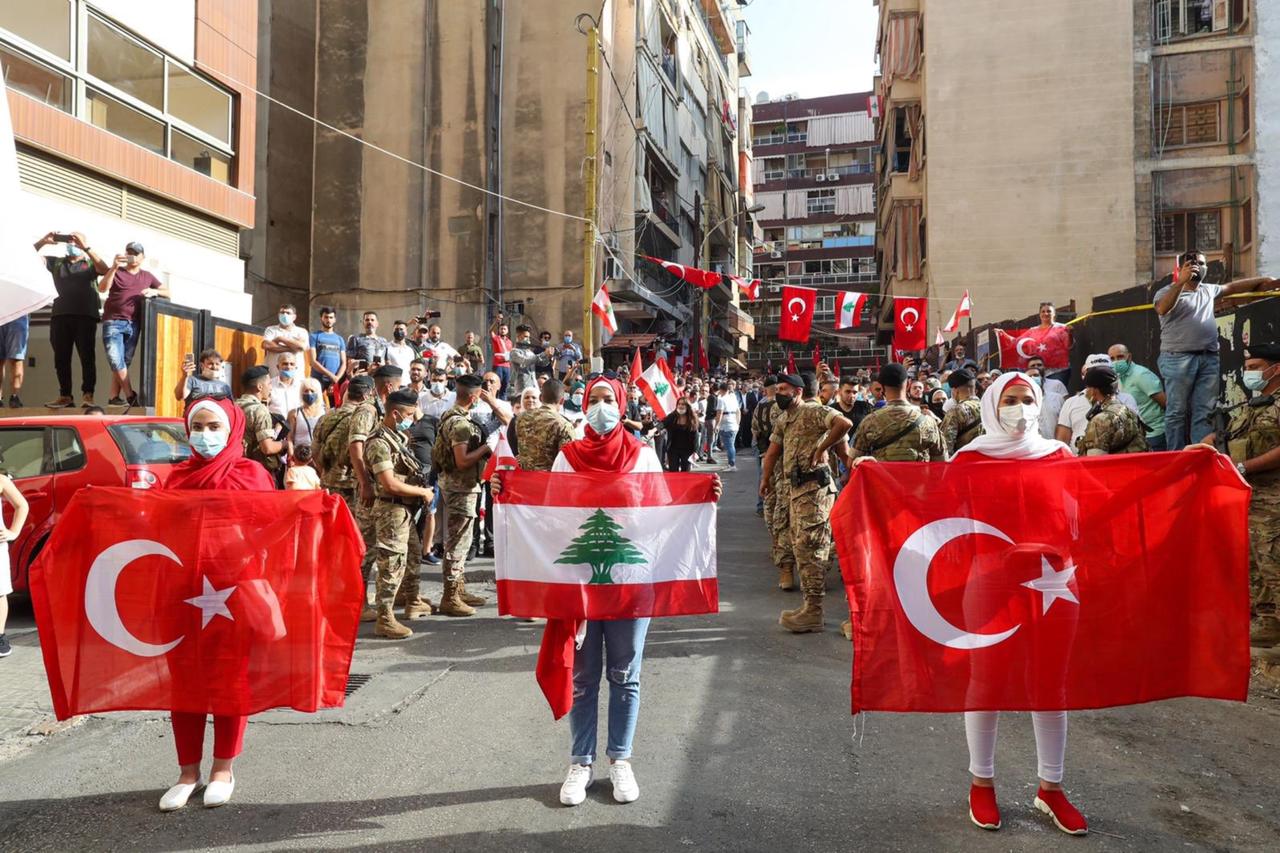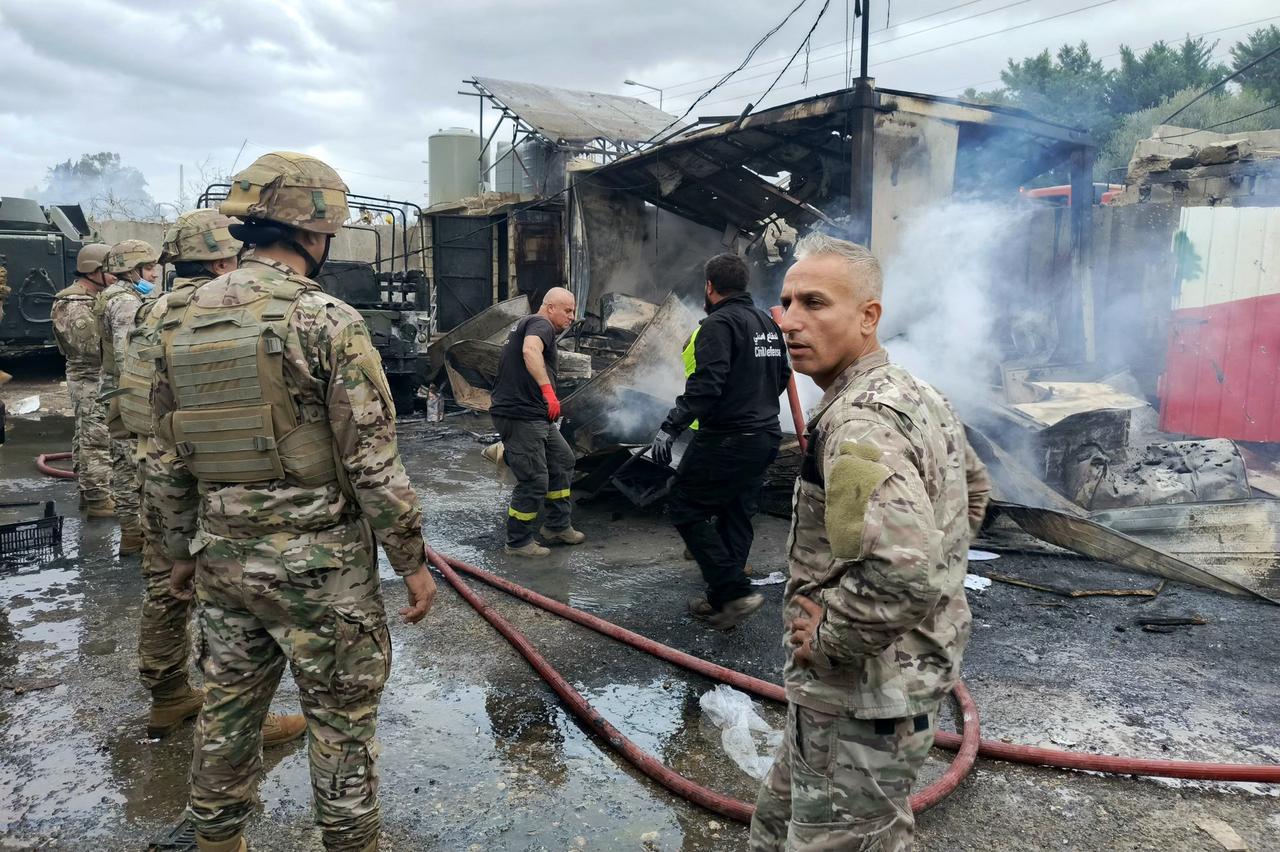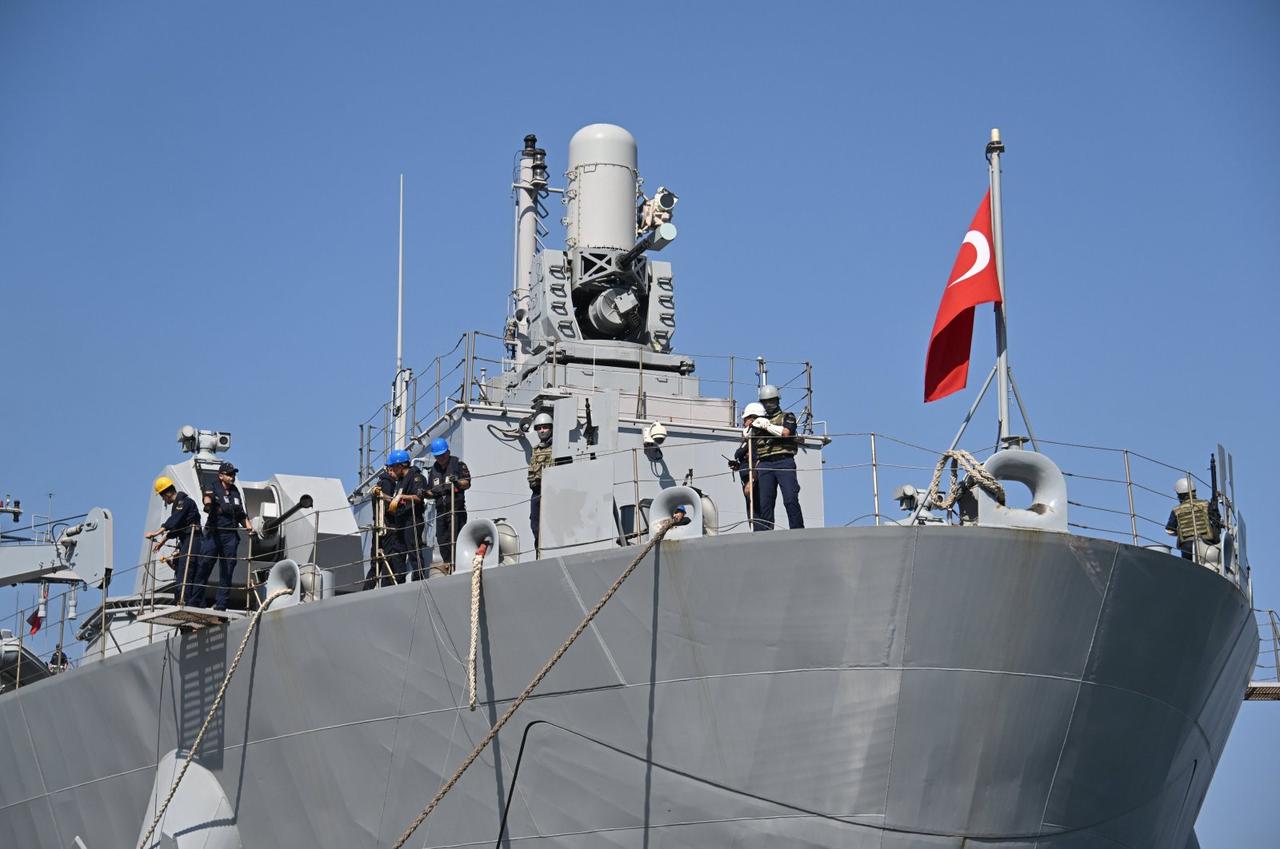
Lebanon is edging closer to approving a U.S.-sponsored plan to dismantle Hezbollah’s military infrastructure by the end of the year.
The deal, described as unprecedented, would see Hezbollah give up its arsenal in exchange for an Israeli withdrawal from southern Lebanon and an end to hostilities. For Washington, the plan is a way to redraw the security architecture of the Levant.
But for Türkiye, the development carries consequences far beyond Lebanon’s borders. Ankara has long sought to position itself as a central player in the Levant and Eastern Mediterranean. If Hezbollah’s disarmament proceeds as envisioned, the ripple effects on regional security, energy competition, and diplomatic alignments could challenge Türkiye’s strategic calculus.
The plan’s origins lie in U.S. diplomacy, led by envoy Tom Barrack, who has pressed Beirut to dismantle Hezbollah first, with Israeli concessions following. That sequencing has fueled criticism in Lebanon, especially since Israel has repeatedly violated a U.S.- and France-brokered ceasefire signed in late 2024.
U.N. monitors report thousands of Israeli breaches, from drone incursions to airstrikes, compared to Lebanon’s limited violations.
While the Lebanese state appears increasingly willing to comply, the majority of the Shia base of the country views the plan as an erosion of sovereignty. President Joseph Aoun, a U.S.-backed former army commander, insists on and resonates the narrative that only state institutions should hold weapons, but dissenting ministers warn the army lacks the capacity to deter Israel.
The army’s dependence on American aid, which is nearly $150 million annually, with a promise to expand to $1 billion, illustrates Washington’s tight grip on Lebanon’s security trajectory.

The most consequential angle for Türkiye lies not just in security, but in energy. Some analysts like Aimen Dean, an ex MI6 spy, argue that if Hezbollah is stripped of its military role, the path clears for an Israel–Cyprus–Lebanon natural gas partnership. Offshore reserves in the Eastern Mediterranean could finally be developed and exported to Europe through direct pipelines, bypassing Türkiye altogether.
For years, Ankara has sought to position itself as the primary energy corridor linking East Med resources to European markets. Lebanon’s integration into a Cyprus–Israel framework would sideline Türkiye, strengthening rival energy blocs that exclude Ankara.
The prospect of a functional trilateral partnership, once dismissed as unrealistic, is now being discussed with newfound seriousness.
Energy is not only about infrastructure, but it is also a tool of political leverage. Israeli Prime Minister Benjamin Netanyahu has already shown a willingness to use gas deals as bargaining chips. He recently threatened to shelve a multi-billion-dollar natural gas agreement with Egypt after accusing Cairo of violating the 1979 Camp David peace treaty.
The deal, announced in August, was to become Israel’s largest gas export contract, worth up to $35 billion by 2040. Netanyahu’s threat signals that his government is ready to weaponize energy agreements in moments of political dispute.
If such tactics are applied to Lebanon, Israel could link its cooperation on gas to Beirut’s compliance with the disarmament plan, creating a state next to it that is entirely dependent on its decisions.

Beyond energy, the Levant region, especially with the new ally in power in Syria, has become central to Türkiye's policy in the neighborhood. Ankara views stability in Lebanon as tied to its own security environment, given the spillover risks of conflict in Syria and the broader Middle East.
The complete dismantling of Hezbollah could alter the balance of power in the Levant, reducing Iran’s footprint but also opening the door to deeper U.S. and Israeli influence.
From Türkiye's perspective, this shift creates both risks and openings. On one hand, the erosion of Hezbollah diminishes Iran’s leverage, which Türkiye often competes with across the region. On the other hand, it consolidates an axis involving Washington, Tel Aviv, Nicosia, and potentially Beirut, one that excludes Ankara and weakens its negotiating hand in Eastern Mediterranean disputes.
Türkiye is not starting from scratch in Lebanon. Over the past two decades, Ankara has positioned itself as both a mediator and a security partner. Turkish troops remain part of the U.N. peacekeeping mission established after the 2006 war, and Ankara has played a role in resolving Lebanon’s internal political crises, including the Doha Agreement in 2008.
Turkish parliaments have consistently extended the mandate for its peacekeepers, signaling continuity in its commitment to Lebanese stability.
Economically, Ankara once spearheaded an initiative to form a free trade and visa-free travel zone with Lebanon, Syria, and Jordan. That project collapsed with the outbreak of the Syrian war, but Türkiye has shown signs of recalibrating its regional agenda since the weakening of Iranian proxies and the shift in Damascus. Reviving such economic integration, including energy interconnections, could offer Lebanon alternatives to exclusive dependence on Western or Gulf aid. Ankara has also proposed exporting electricity to Syria and Lebanon earlier this year.
Diplomatically, Türkiye could step up engagement with Beirut through economic aid, investment, and political coordination. Analysts suggest four main pillars for a renewed Turkish policy: keeping the soft power investment coming, deepening bilateral trade, counterbalancing Iranian and Israeli influence, and strengthening Beirut–Damascus ties.
These align closely with Lebanon’s own search for stability following the election of a new president and prime minister, both viewed positively by Ankara and Gulf capitals.
Only after the early steps are taken, crucially, Türkiye can use its position in regional security forums, including coordination with Iraq and Jordan, to integrate Lebanon into broader stabilization frameworks. By offering security assurances and economic cooperation, Ankara could position itself as a counterweight to Israeli and U.S. leverage over Beirut.
For Ankara, northern Lebanon offers more than cultural and community ties; it presents opportunities to anchor itself in regional trade and energy flows at a time when the eastern Mediterranean’s balance is shifting.
Tripoli’s port stands out as the most immediate avenue. Larger in size and depth than Tel Aviv's facility, it is well-placed to serve as a logistics hub for Syrian reconstruction and even trade routes reaching Iraq. Turkish companies have quietly expressed readiness to invest in their modernization, which could position Tripoli as an alternative gateway for regional commerce.
Another potential opening is Qlayaat airport, a dormant airstrip near the Syrian border. Local actors have long lobbied for its reactivation, and Ankara has signaled interest in supporting such efforts. While framed in commercial terms, improved air connectivity between northern Lebanon and Türkiye would naturally carry strategic value.
Perhaps the most intriguing, if still speculative, prospect lies with the Beddawi refinery. Though underutilized since the 1980s, it remains linked to the skeleton of the old Trans-Arabian Pipeline (TAPLINE). Any revival—whether through co-management or technical cooperation—would grant Türkiye a foothold in the region’s evolving energy architecture.
Lebanon’s political class remains divided, and Hezbollah’s deep social roots mean full disarmament is far from guaranteed. Still, the trajectory is clear: U.S. and Israeli pressure is reshaping Lebanon’s options, and energy considerations are increasingly central to the debate.
For Türkiye, the challenge is how to respond before the strategic map of the Levant and Eastern Mediterranean is redrawn without it. That may require Ankara to reinvest in ties with Beirut, engage more actively in Lebanon’s reconstruction and economic stabilization, and seek more channels of dialogue with all Lebanese factions. Otherwise, it risks being boxed out of an emerging regional order where its rivals set the terms.